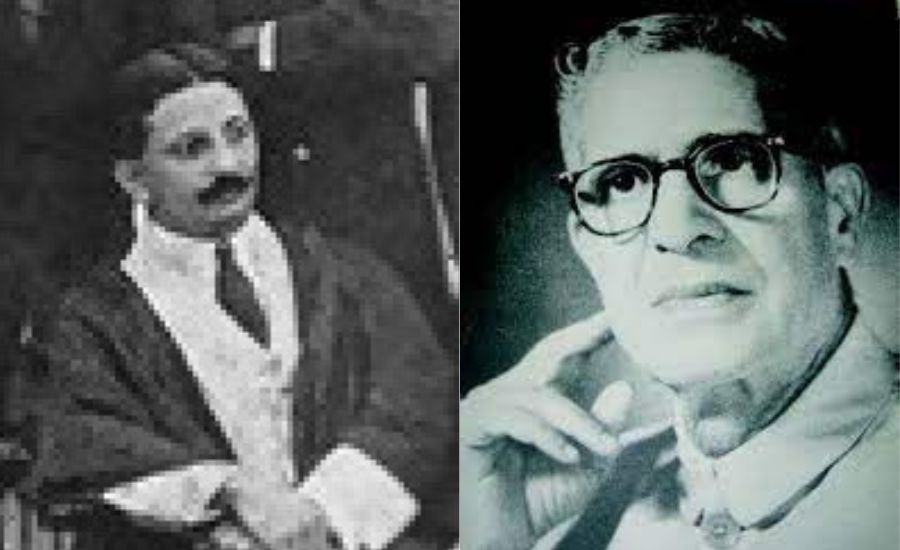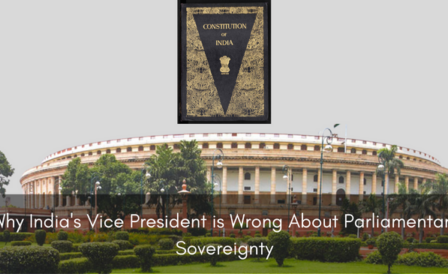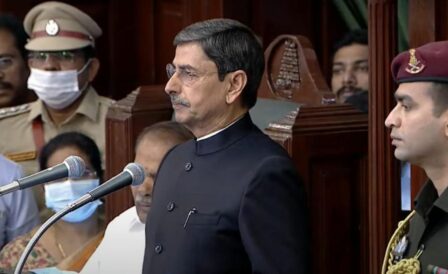
Last Friday, the President of India promulgated an ordinance under Article 123 of the Constitution, that reversed the effect of an important Supreme Court judgement. The judgement had handed control of civil servants and day-to-day administration in the National Capital Territory of Delhi, to the duly elected Delhi government. Opposition leaders have been sharply critical of this move, describing it as an “open challenge” and an “insult” to the Supreme Court’s authority.
When the ordinance-making powers of the President were being discussed in the Constituent Assembly, members were concerned about more fundamental implications of such a power—namely, the allocation of legislative powers to the executive and the violation of the doctrine of separation of powers.
Hriday Nath Kunzru agreed that an emergency situation might require some immediate action by the government in the form of an ordinance, but failed to see why Parliament shouldn’t convene immediately, or as soon as possible to deal with the situation. K.T. Shah supported this argument, calling the ordinance making power “a negation of the rule of law,” and an “extreme power in the hands of the executive.”
The response of the Chairman of the Drafting Committee B.R. Ambedkar is revelatory. Firstly, he acknowledged the concerns of the members but pointed out that there must be some mechanism by which the executive could deal with unforeseen situations through legislation, when Parliament is not in session. Secondly, he allayed Kunzru’s concerns over the time period of an ordinance by saying that Parliament would likely have to meet quite frequently, therefore the existing Article had sufficient protections.
Unfortunately, even since Prime Minister Nehru’s time, consecutive governments have not respected the need for constraint, averaging nearly 10 ordinances a year. Can such a frequent use of this power be justified as being absolutely necessary? What the Constituent Assembly hoped would be a rare and unusual power to meet unforeseen circumstances has been converted into a tool to overcome parliamentary scrutiny. The most egregious misuse of this power occurred in Bihar in the 1970s, when the state government kept on re-promulgating ordinances without even bothering to bring them to the floor of the legislative assembly.
Declaring the re-promulgations to be unconstitutional, Justice P.N. Bhagwati commented strongly:
“The power to promulgate an Ordinance is essentially a power to be used to meet an extraordinary situation and it cannot be allowed to be ‘perverted to serve political ends.’”
While the Constituent Assembly was more concerned about the possibility of the executive abrogating legislative powers to itself, the political controversy unfolding in the present seems to be taking a different form. Now, the executive has chosen to step on the judiciary’s toes as well through the ordinance route. With all three pillars of the state drawn into the issue, the way this matter resolves itself will have important consequences for the doctrine of separation of powers, and the health of Indian democracy itself.
More blog posts

Why India’s Vice President is Wrong About Parliamentary Sovereignty
07 January 2023 • By Varsha Nair
On 7 December 2022, Vice President Jagdeep Dhankar declared that ‘Parliament is the exclusive and ultimate determinative of the architecture of the Constitution’ and insisted that ‘the basic structure is primacy of the will of the people’. Are we at the beginning of another inter-institutional debate, 40 years after the Basic Structure Doctrine?

The Tamil Nadu Governor and Constitutional Conventions
25 February 2023 • By Siddharth Jha
On 9 January 2023, the Governor of Tamil Nadu chose to skip certain portions of the speech prepared by the state government, while addressing the first session of the Legislative Assembly in the new year. This kicked off a huge political row, with the ruling party in Tamil Nadu alleging a serious breach of “convention”.
